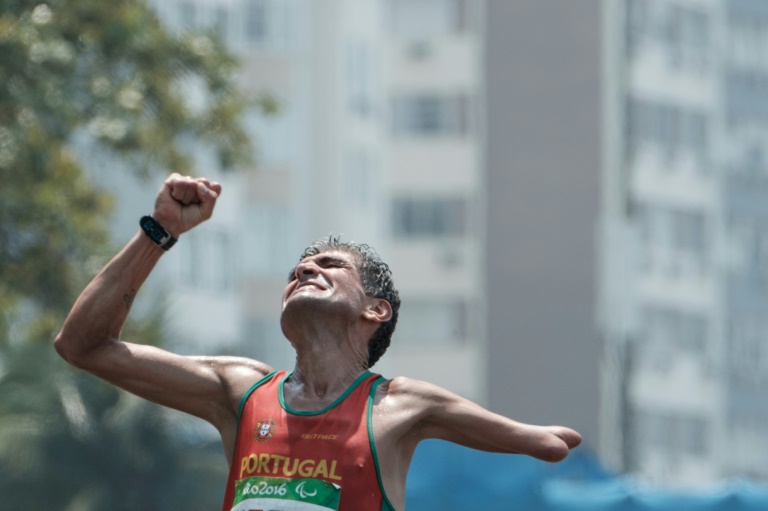Having no fans at the Tokyo Paralympics will be “a challenge”, IPC chief Andrew Parsons said Wednesday, but he is confident the event will reach “more people than ever before”.
The Paralympics are set to open behind closed doors on Tuesday, after organisers decided this week to follow the Olympics’ example in banning spectators over virus fears.
Japan is currently battling record coronavirus infections, with Tokyo and other parts of the country under a state of emergency.
International Paralympic Committee president Parsons told AFP the decision to ban spectators will have “an impact that we cannot minimise”, but he believes a global TV audience will still put the Paralympics centre stage.
“Of course, the fact that we will not have spectators at the venues is a challenge, but we believe we will reach more than four billion people through broadcasting,” he said.
“So we still believe the reach of these Games will be incredible. We will reach more nations and more people than ever before.”
The Games come with virus cases surging across Japan. More than 20,000 new daily infections have been recorded in recent days, driven by the more contagious Delta variant.
Japan’s government has insisted the Paralympics will be held safely and that it remains committed to hosting them.
Around 4,400 athletes are expected to take part in the event, and like their Olympic counterparts they will face daily testing and restrictions on their movement.
Organisers of the July 23-August 8 Olympics have reported 544 positive cases among athletes, officials and media, most of them among Japan-based employees and contractors.
They have said there was no evidence that infections spread from Olympic participants to the Japanese public.
– ‘Wave of positivity’ –
Parsons said the implementation of the Olympic “bubble” convinced him the Paralympics can work.
“The main lesson is that we can deliver the Games in a safe way,” he said.
“We know the numbers are getting higher and higher in Tokyo and Japan, so we want to protect Japanese society and we want to protect our athletes as well. That’s why we will not be complacent.”
Paralympic organisers have already reported 58 positive cases, and have also been embarrassed by the arrest of a Georgian judoka on suspicion of seriously injuring a security guard.
But Parsons insists the Paralympics will “not be a spreader of the virus”, and said the event can ride a “wave of positivity” similar to that seen after the start of the Tokyo Olympics.
While polls regularly showed people in Japan were opposed to the Olympics before they opened, thousands turned out to stand outside venues or along public roads to soak up the atmosphere.
And polls taken after the event ended showed a majority felt holding them was the right decision.
“I think the Japanese population will be proud, not only of the Japanese Paralympic athletes,” Parsons said.
“Because they are hosting an event that will change the world. I think we will see the same wave of positivity.”
The IPC chief also believes the legacy of the Paralympics will make the event worthwhile.
“The pandemic has highlighted some of the inequalities in different societies towards persons with disabilities,” he said.
“It’s the moment when they need their voices heard the most. The Paralympics is the only global event that puts persons with disabilities centre stage.
“These Games will be the most important Paralympic Games ever.”










